Social Psychology > EXAM > NCLEX LPN Psychosocial Integrity 3 - Questions, Answers and Explanations (All)
NCLEX LPN Psychosocial Integrity 3 - Questions, Answers and Explanations
Document Content and Description Below
NCLEX LPN Psychosocial Integrity 3 - Questions, Answers and Explanations The LPN/LVN cares for a client diagnosed with multiple sclerosis in remission for 5 years. The client suddenly experiences ext... ensive weakness in both legs. The client's spouse is angry, blames the physician, and asks the LPN/LVN to help the family find a new physician "who is more competent." Which of the following responses by the LPN/LVN is BEST? 1. "Your demand for a new physician is upsetting your wife." 2. "Please share with me your specific concerns about your wife's care." 3. "The physician caring for your wife is more than qualified." 4. "Your wife will have to ask me to find a new physician." (1) is very intense situation; this may help husband calm down but does not address his feelings of disappointment at the return of the signs/symptoms (2) CORRECT—if client has had disease for 5 years, husband is aware of remissions and exacerbations associated with disease; his behaviors are more related to the threats to his wife; opportunity to express his feelings may help him return to more realistic thinking as well as provide the LPN/LVN with data for decision making (3) spouse is not seeking information about physician's ability (4) technically correct; closed statement that does not allow husband to verbalize feelings; more appropriate to encourage husband to express his feelings The LPN/LVN cares for a client diagnosed with end stage renal disease and obsessive-compulsive disorder in the long-term care facility. The client has difficulty getting to dialysis on time because the client can't decide which clothing to wear. Which of the following actions by the LPN/LVN is MOST appropriate? 1. Place a clock in the client's room so that the client can monitor the time. 2. Allow the client to choose between two sets of clothing. 3. Inform the client she will have 15 minutes to get dressed. 4. Dress the client in the appropriate clothing. (1) obsessive-compulsive disorder is an anxiety disorder; performing compulsive acts temporarily decreases anxiety levels; client is late due to difficulty making a decision; clock may cause increased anxiety (2) CORRECT if client is indecisive, limit the client's choices; if client still unable to make a decision, give client one outfit to wear (3) provide the client with time to dress; this will not help client make a decision (4) encourage client to perform as much of care as possible; give client simple directions The LPN/LVN cares for a client diagnosed with bipolar disorder during a period of elation. The LPN/LVN follows the nursing care plan and chooses which of the following approaches when caring for the client? 1. Point out the effect the client's behavior has on others. 2. Attempt to distract and redirect the client. 3. Encourage the client to express himself. 4. Provide opportunities for the client to socialize. (1) during manic periods, client has flight of ideas, is disoriented, talks excessively, jokes, dances, sings, is hyperactive; would be unable to deal with the impact of the behaviors on others (2) CORRECT—attempting to distract and redirect the client is the proper course; clients with mania have a tremendous amount of energy, for which they must have an outlet; attempts to confront or limit excessive activities usually lead to an increase in anger and frustration; by redirecting or distracting the client, the LPN/LVN recognizes the client's need for outlets and demonstrates acceptance and understanding of the manic individual's needs (3) during manic phase, client excessively expresses him/herself; important that the staff provide external controls; do not encourage client but help client channel expressions safely (4) during manic phase, important to decrease stimuli; assign to a single room away from activity, limit interactions with people; anticipate situation that will provoke or overstimulate the client The LPN/LVN interacts with a client diagnosed with obsessive-compulsive disorder. Because of a hand washing ritual, the client has difficulty getting to meals on time. In following the plan of care, it is MOST important for the LPN/LVN to implement which of the following interventions? 1. Permit client to eat in the room. 2. Allow the client to be late for meals. 3. Notify the client 15 minutes before mealtime. 4. Instruct the client to discuss the matter with the doctor. (1) goal is to help client manage daily activities while dealing with need for excessive hand washing (2) does not give the client direction about how to deal with the hand washing ritual (3) CORRECT—temporarily allows time to perform the anxiety-relieving ritual; relieves the client from any sense of pressure (4) referrals are outside the LPN/LVN role; if LPN/LVN perceives that referral may be needed, should discuss with charge nurse; there is no direct line of authority from the LPN/LVN to the physician The psychiatric nurse-leader instructs the [Show More]
Last updated: 1 year ago
Preview 1 out of 13 pages
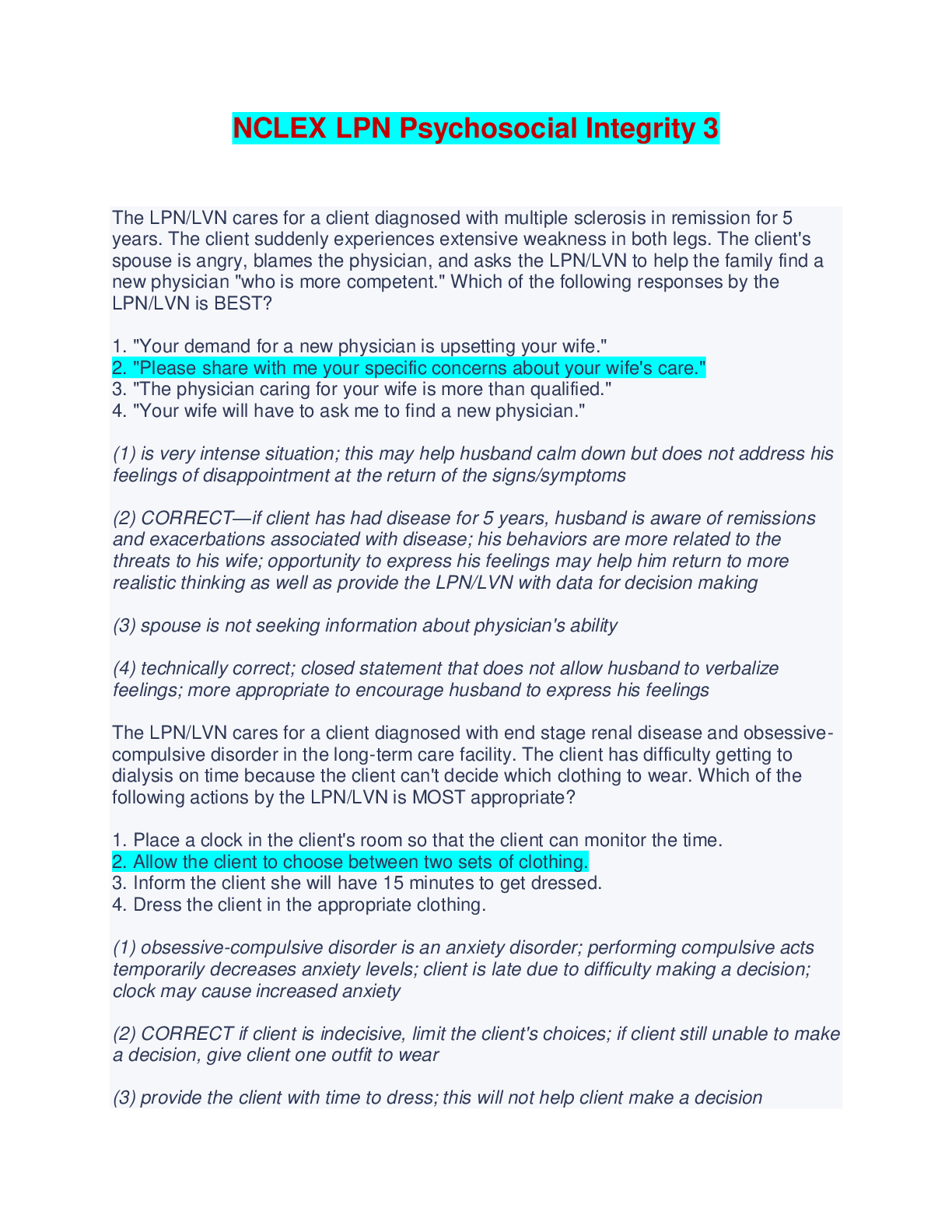
Buy this document to get the full access instantly
Instant Download Access after purchase
Buy NowInstant download
We Accept:

Also available in bundle (1)

NCLEX LPN PSYCHOSOCIAL INTEGRITY 1-4 BUNDLE
NCLEX LPN PSYCHOSOCIAL INTEGRITY 1-4 BUNDLE
By Nurse Henny 1 year ago
$30
4
Reviews( 0 )
$15.00
Can't find what you want? Try our AI powered Search
Document information
Connected school, study & course
About the document
Uploaded On
Jul 20, 2023
Number of pages
13
Written in
Additional information
This document has been written for:
Uploaded
Jul 20, 2023
Downloads
0
Views
223

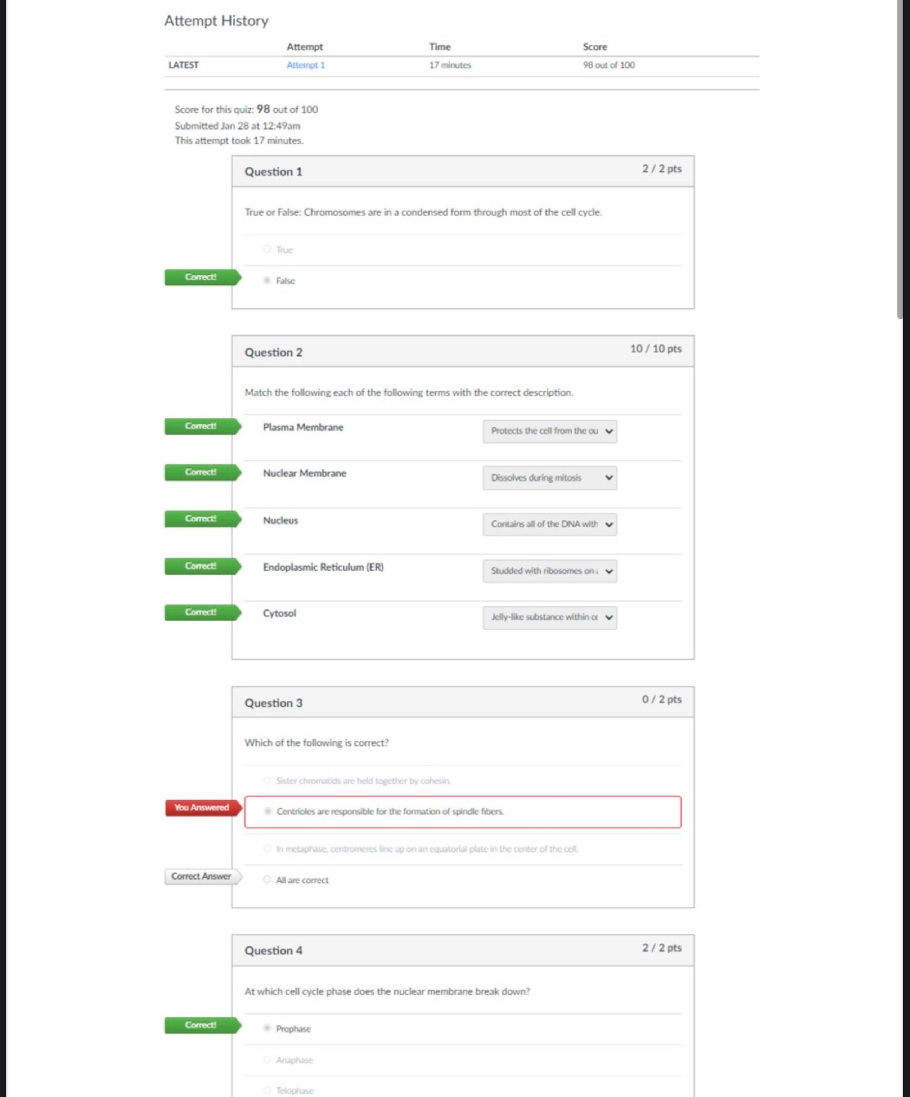
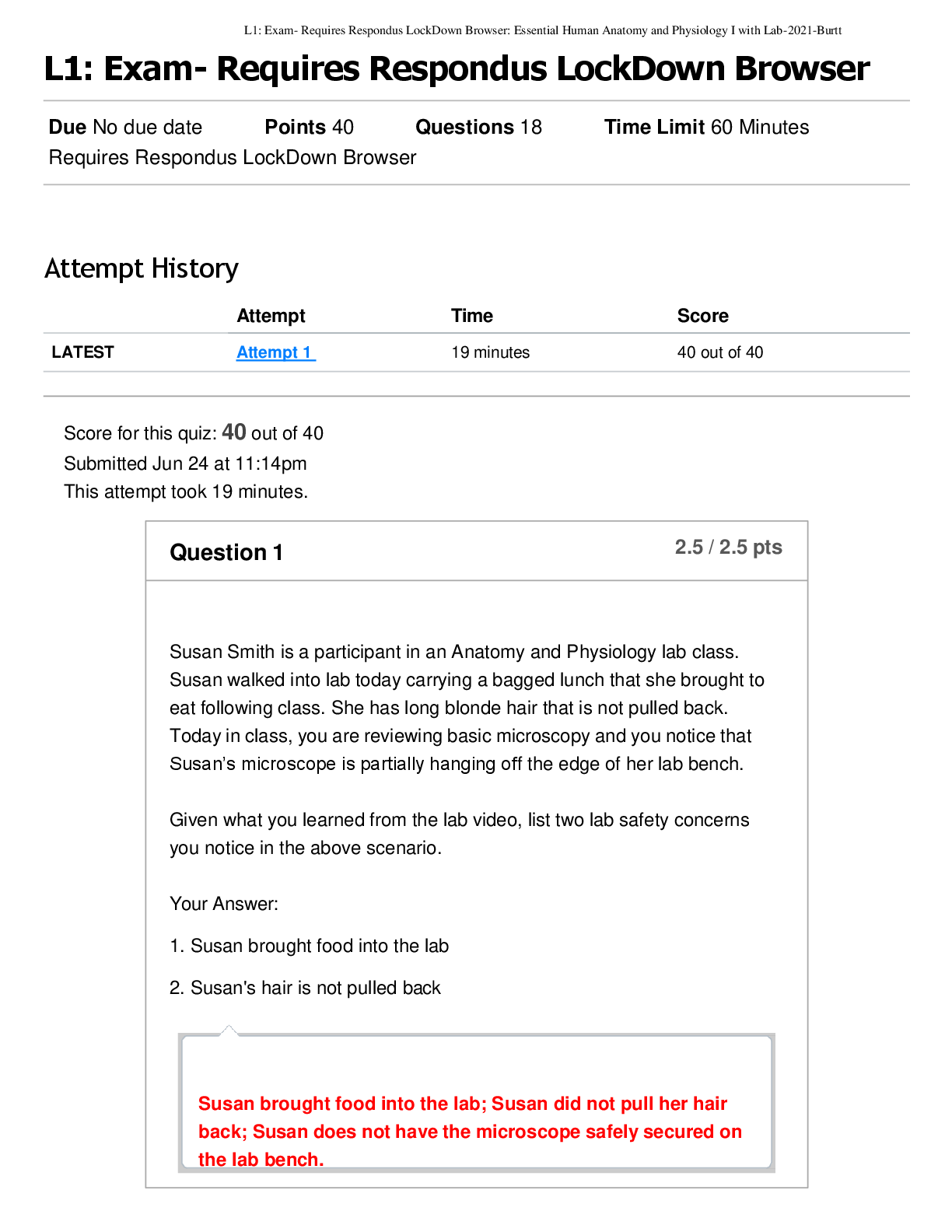


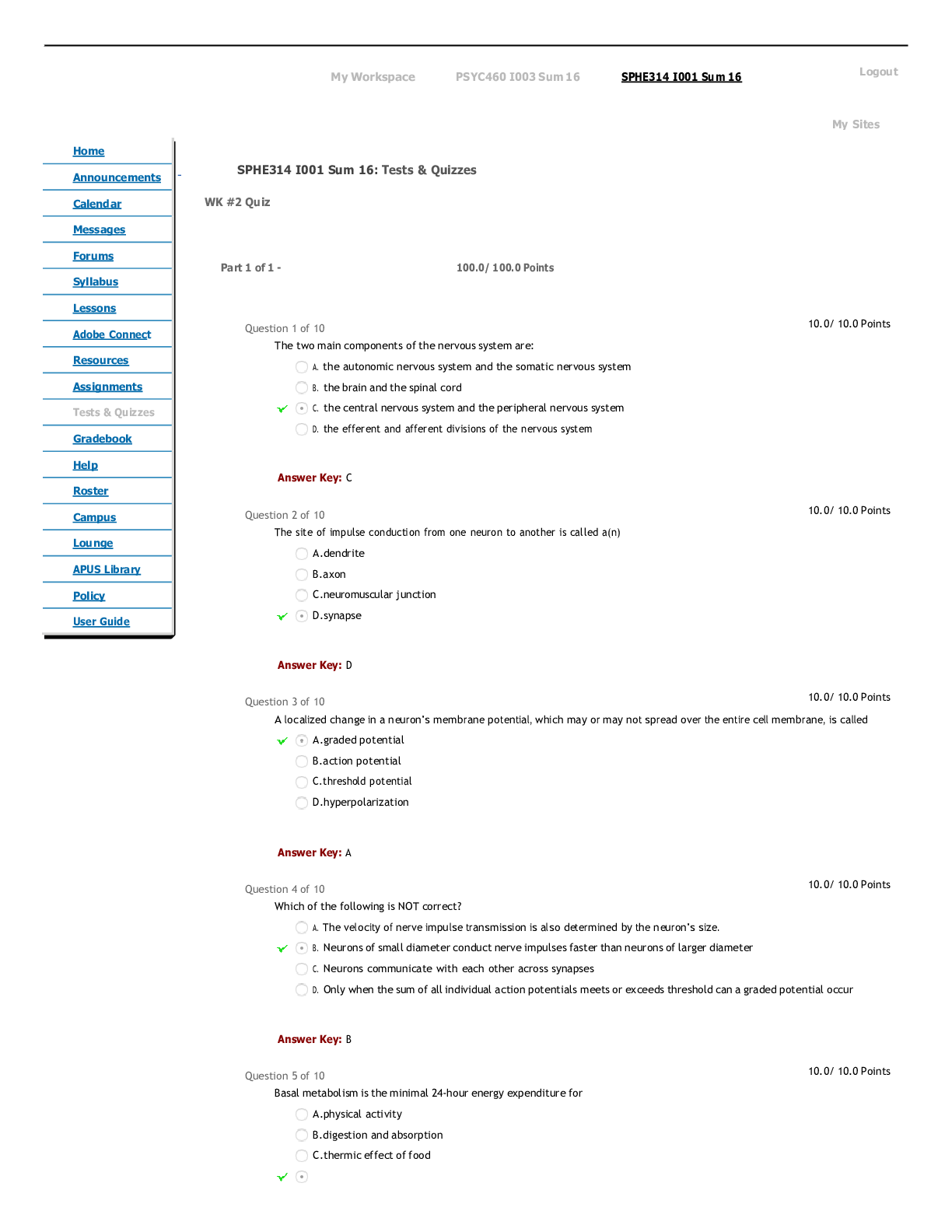
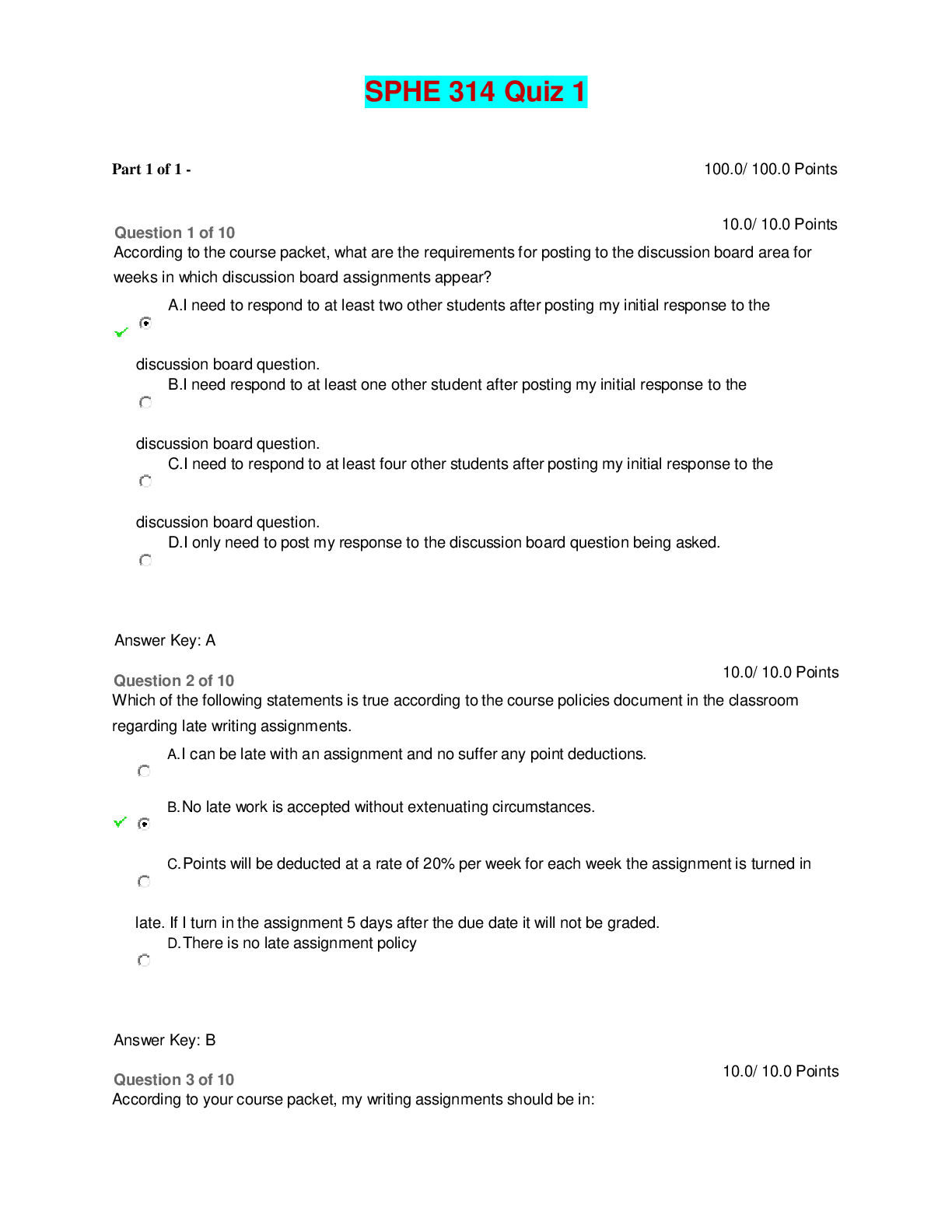
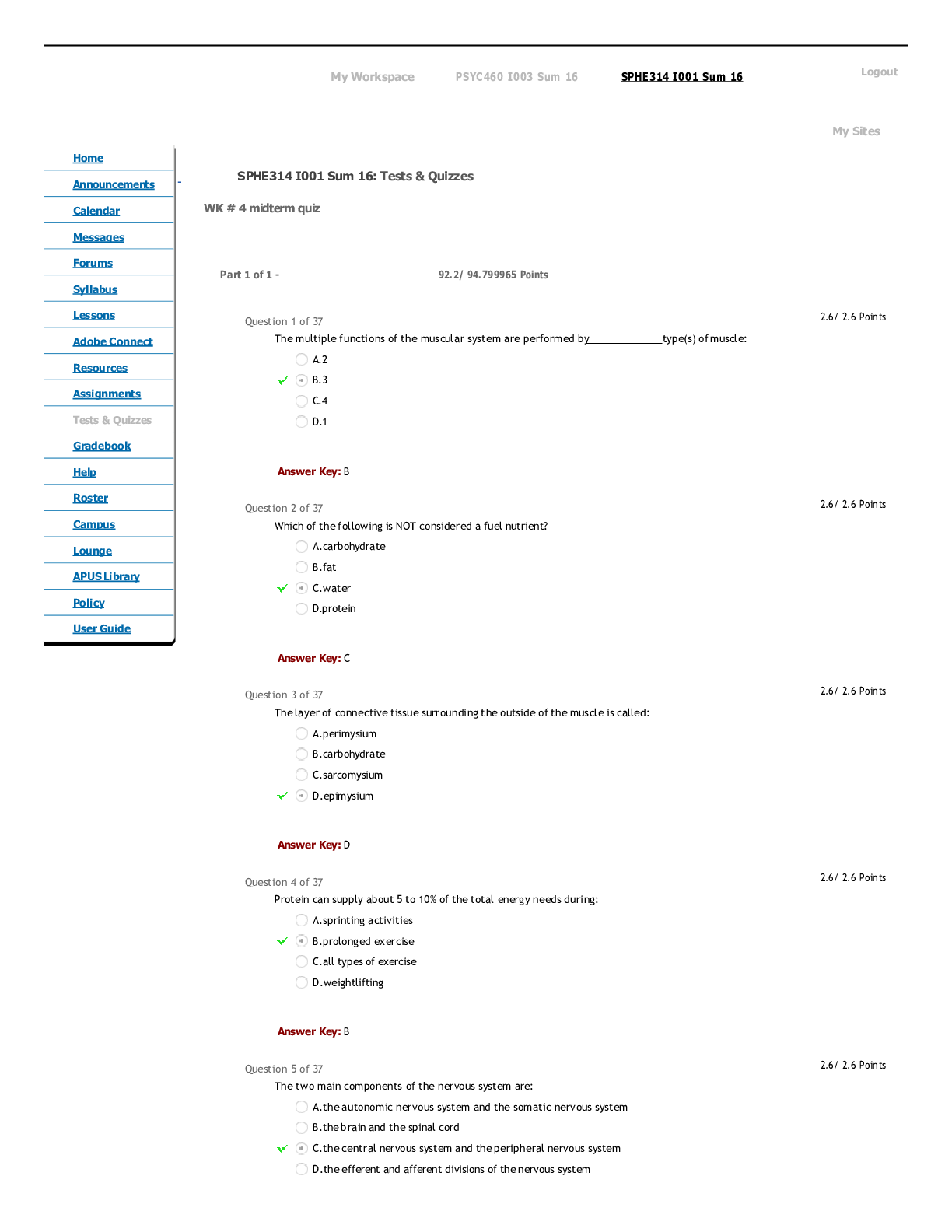
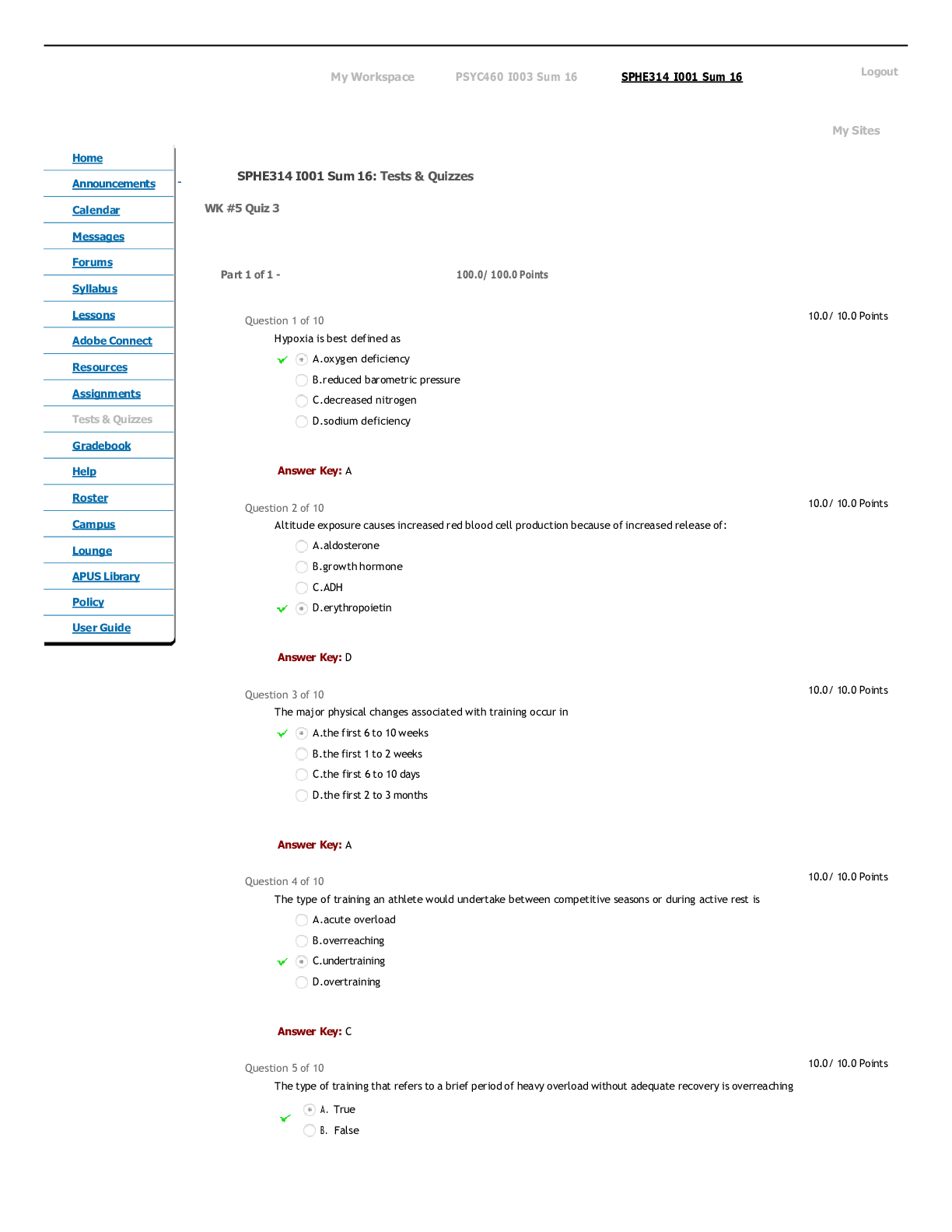
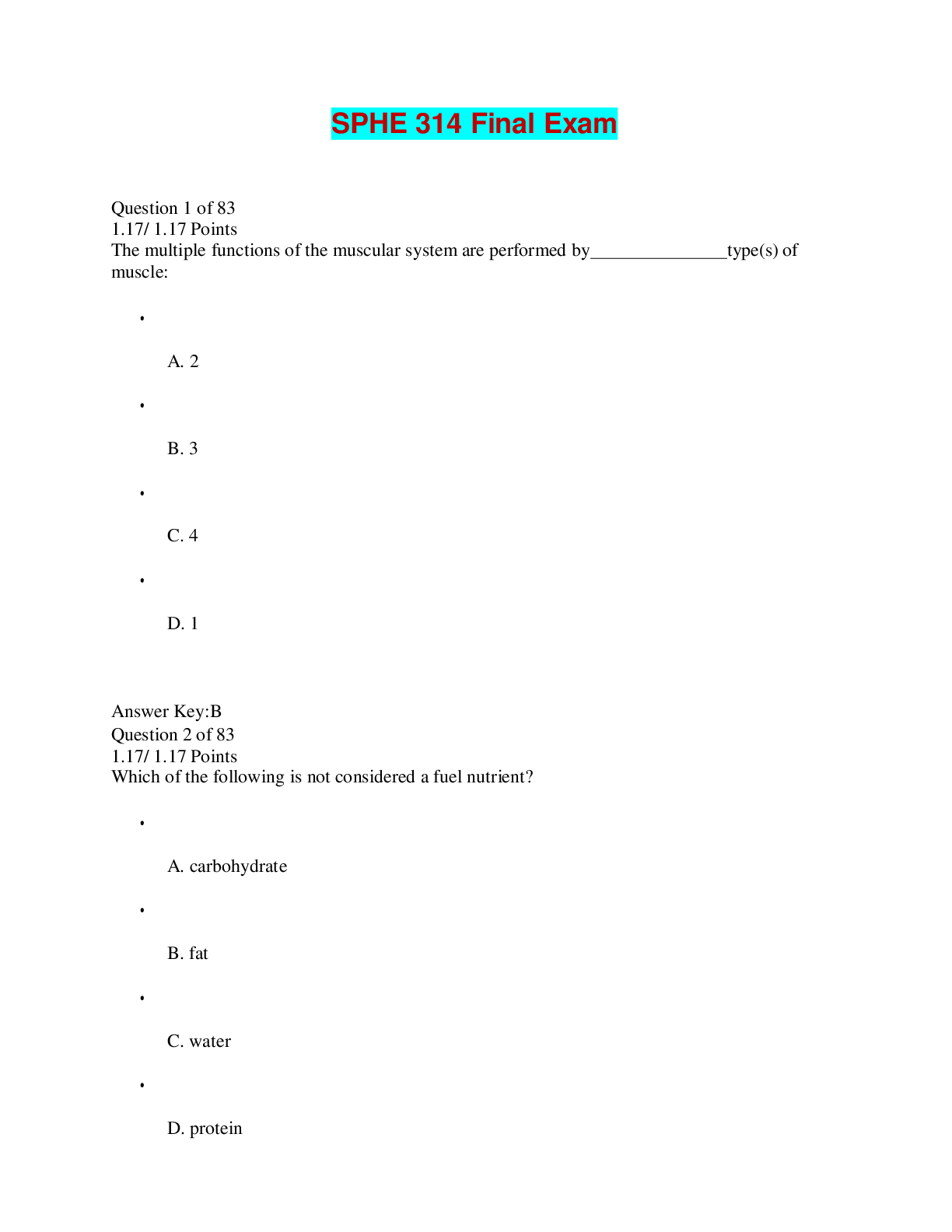
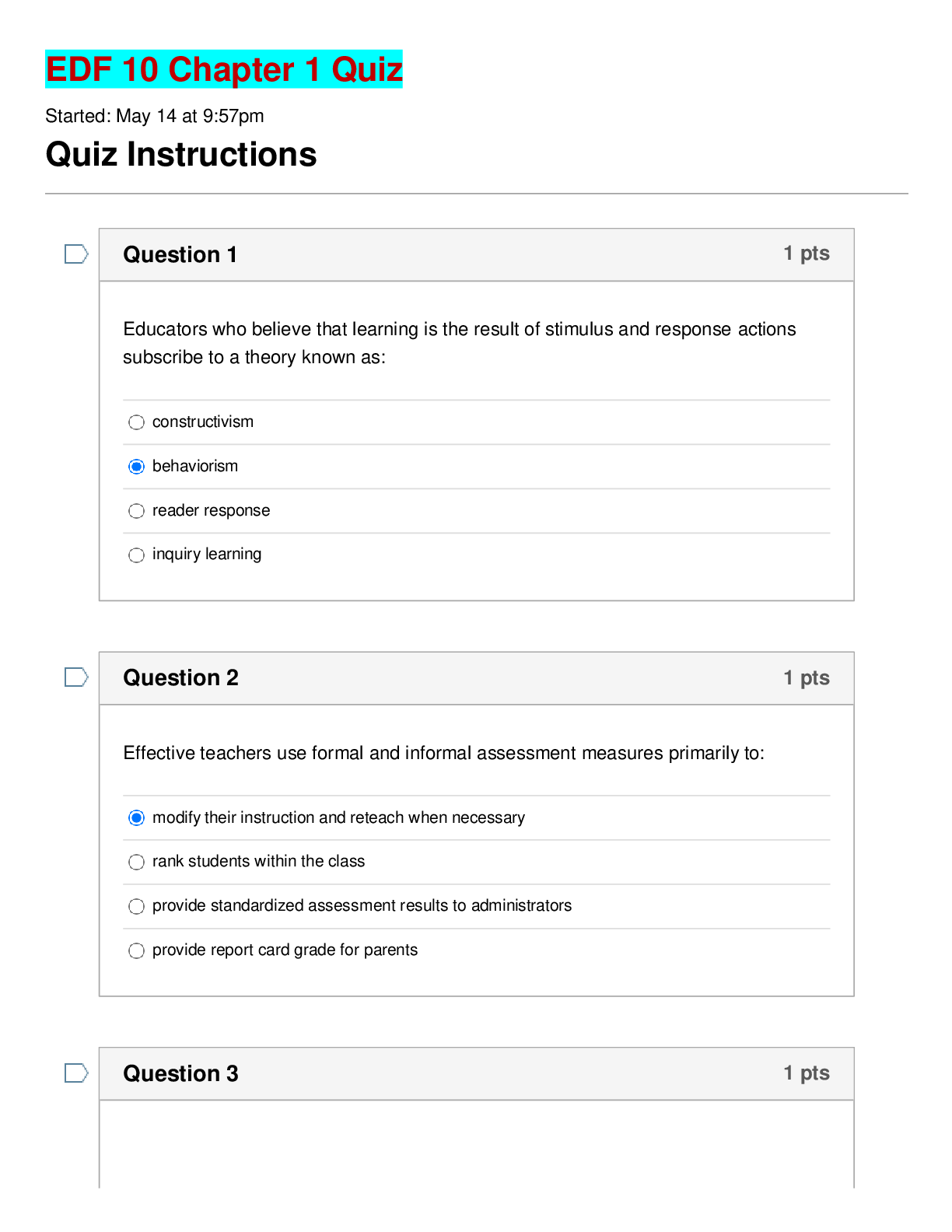
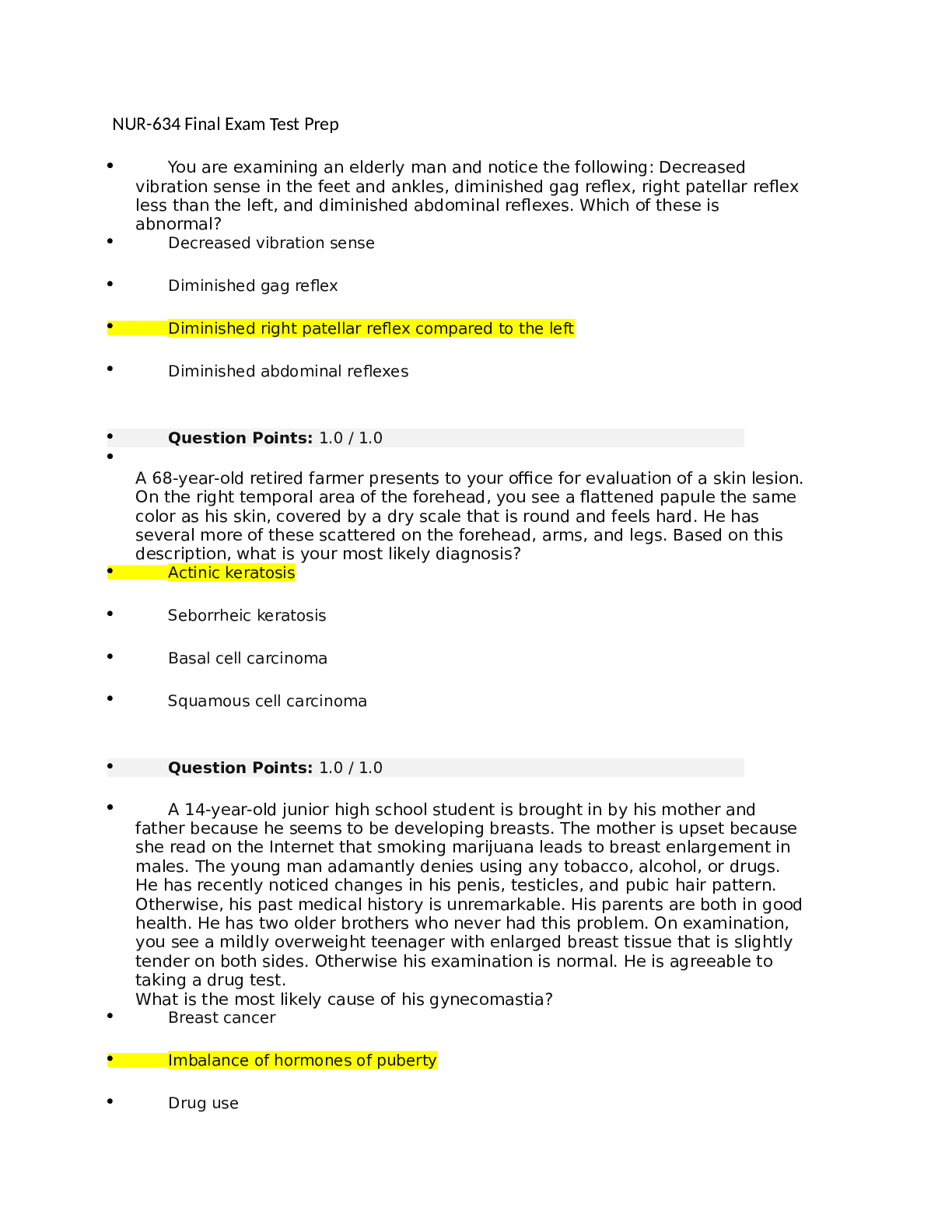











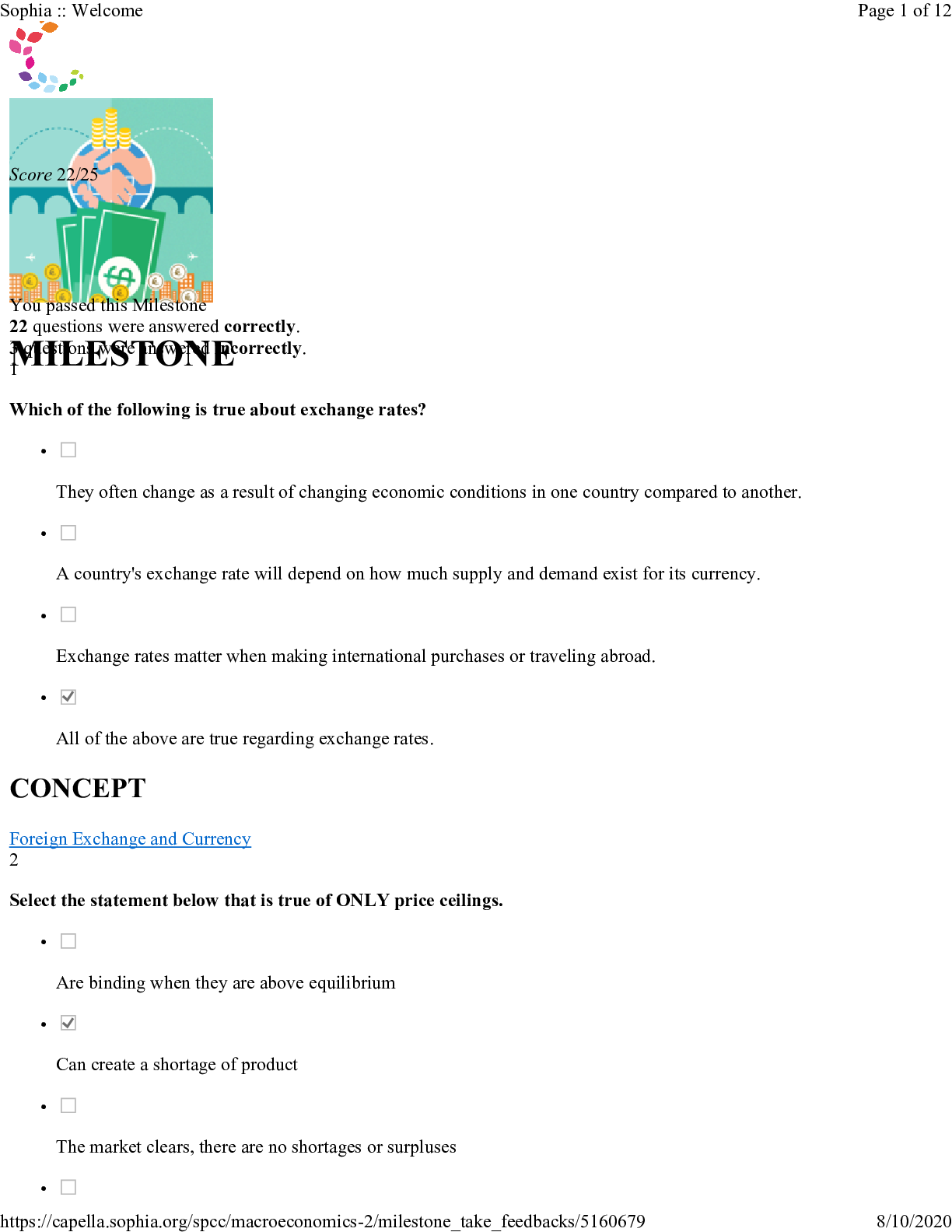
.png)

